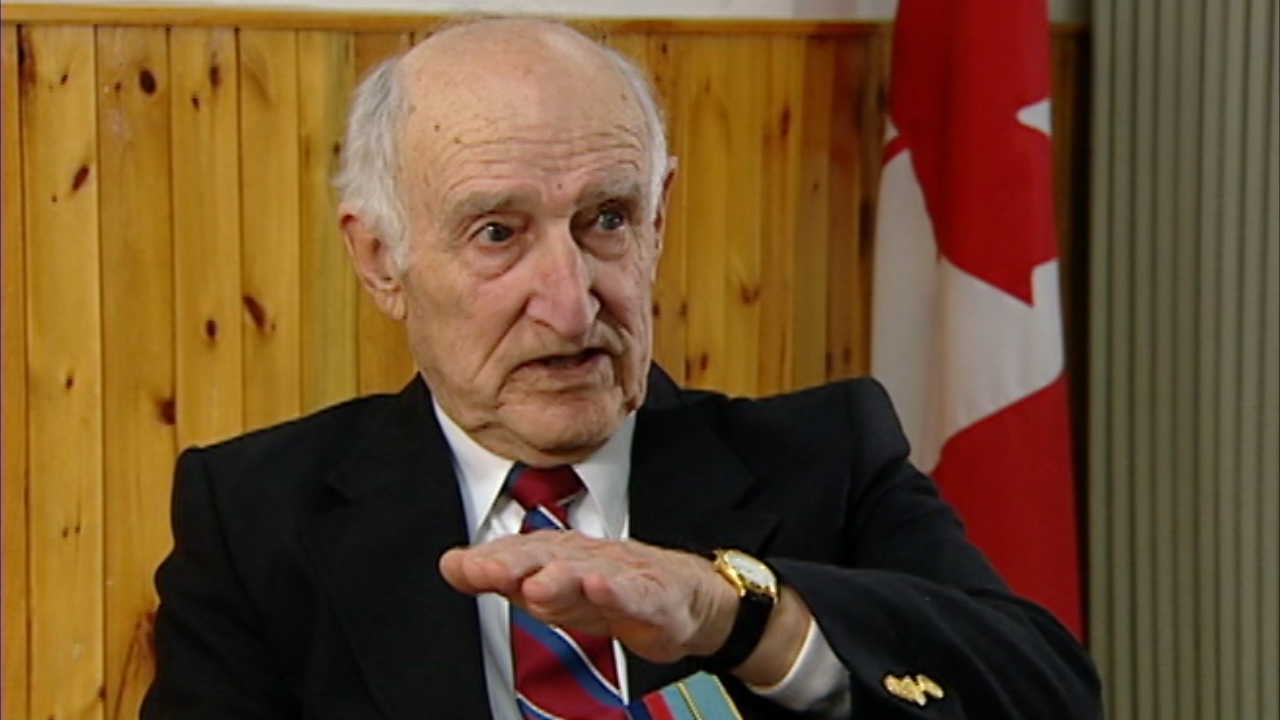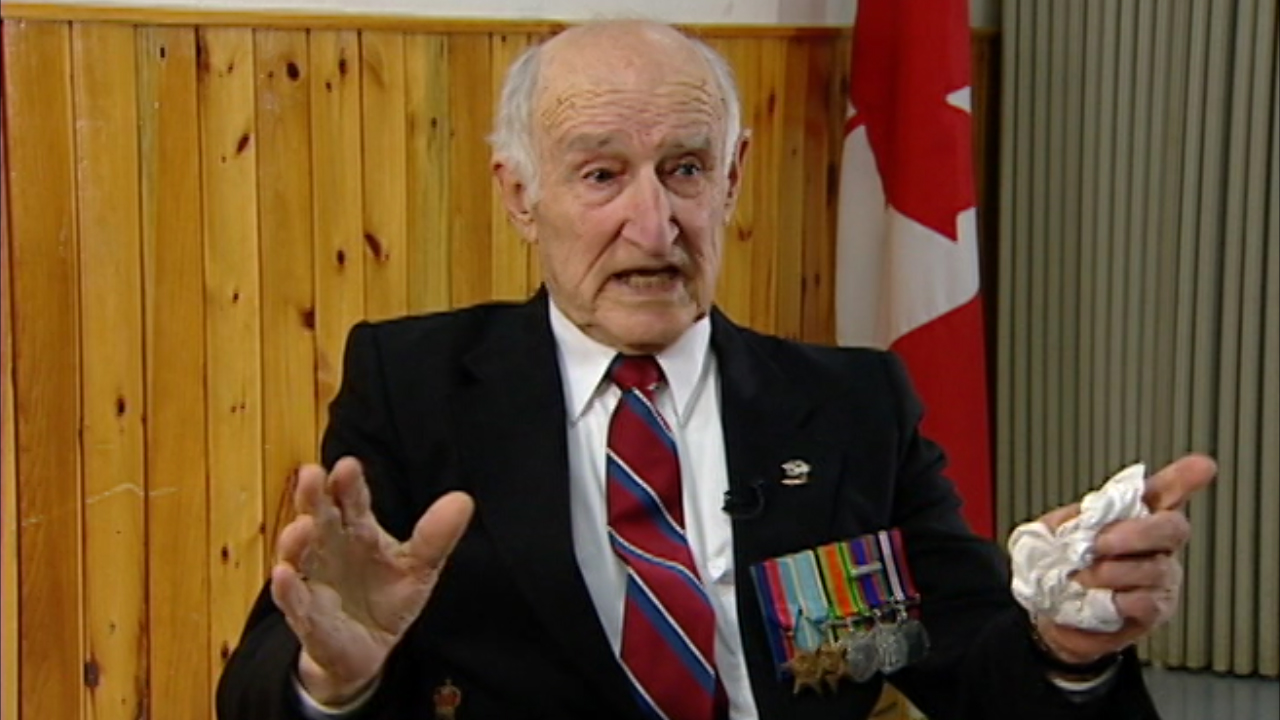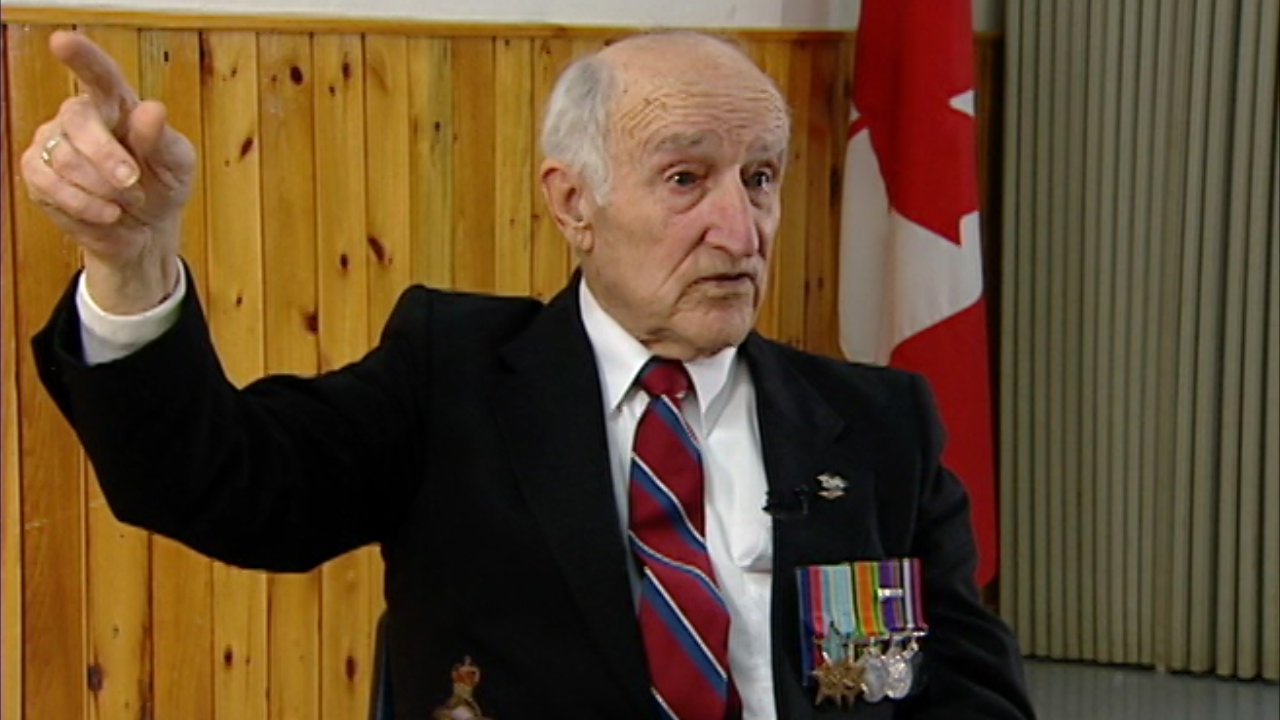Nationalities in War
Heroes Remember
Nationalities in War
Transcript
Description
Mr. Cormier, talks about all the nationalities that fought in the war and what was different about all of them.
Laurie Cormier
Mr. Cormier was born November 26, 1921, in Moncton, New Brunswick. He was the oldest child of seven boys. His father, who passed away when Mr. Cormier was 12 years old, worked as a clerk in the general office for the railways. When Mr. Cormier's father died the family moved to Dieppe to live with his mother's sister. Mr. Cormier attended the Academy School on Church Street in Moncton at the time making it all the way to high school.
Mr. Cormier first joined up to be a pilot in the Royal Canadian Air Force. He was accepted and did his first solo along the St. Lawrence but because of his lack of education he was scrubbed out. He did qualify as a gunner and after three months of training was called to serve in Europe. Leaving from New York he travelled to England via the Queen Elizabeth II.
Mr. Cormier served as a gunner aboard the Halifax aircraft and was on a bombing run over Europe when his plane was attacked and subsequently shot down over Germany. He was able to parachute to safety and after two days he was captured and interned in a POW camp. He spent the rest of the war in the POW camp. At the end of the war he was transported by American troops from Germany to Belgium and then to England by the Royal Air Force. Mr. Cormier stayed in England waiting for permission to travel to Canada, travelling home aboard the Isle de France landing in Halifax, before travelling home to Moncton where he was met by his whole family at the train station.Mr. Cormier took advantage of the financial assistance given to returning Vets and went back to school attending the Success Business College in Moncton. He was able to get a job on the railways in the Engineering Department and stayed with them until he retired.
Meta Data
- Medium:
- Video
- Owner:
- Veterans Affairs Canada
- Duration:
- 1:35
- Person Interviewed:
- Laurie Cormier
- War, Conflict or Mission:
- Second World War
- Location/Theatre:
- Germany
- Branch:
- Air Force
- Occupation:
- Gunner
Related Videos
- Date modified:





